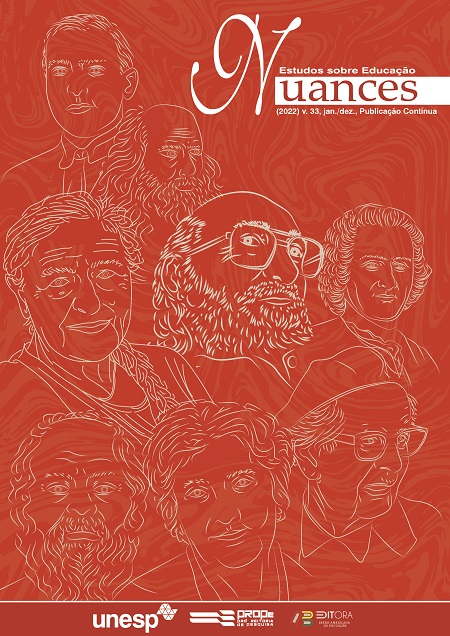Law dissemination and education for ethnic minorities in mountainous areas in Vietnam
DOI :
https://doi.org/10.32930/nuances.v33i00.9724Mots-clés :
Dissemination, Education, Ethnic minorityRésumé
The law dissemination and education for ethnic minority people in Vietnam is still facing challenges and suffering from shortcomings; hence, the effectiveness of law popularization is limited. Based on the aforementioned facts, this paper is dedicated to highlighting some important achievements in the law dissemination and education for the ethnic minorities, analyzing the drawbacks with the law dissemination and education for these populations and the causes of these drawbacks, and accordingly suggesting some radical solutions to the dissemination and education of law for ethnic minority people in Vietnam in the coming time. Thereby, the author proposes 4 groups of solutions in the coming time: First, improving professional capacity and skills for the contingent of legal reporters and propagandists who directly do legal education for people in ethnic minority and mountainous areas; Second, renewing the content of legal for these people; Third, innovating legal education methods; Fourth, reforming the form of legal education.
Téléchargements
Références
COMMITTEE, B. L. Quick summary after 03 years of conducting the project 1163. Bac Lieu, 2019.
DOAN, H. Policies on social development and development management in ethnic minority areas in The Northwest, the Central Highlands, and the Northwest - Theory and Reality. Hanoi, 2010.
HOANG, B. H.; PHAN, H. V. Some issues related to reforming the formulation and implementation of ethnic policies. Hanoi: National Political Publishing House, 2014.
KYMLICKA, W. The rights of minority cultures. Oxford University Press.
NGO, N. V. Sociology of law. Hanoi: Judicial Publishing House. 1995.
NGUYEN, D. M. Law enforcement and application in Vietnam. Hanoi: National Political Publishing House, 2010.
NGUYEN, S. Q. Expanding programmes of law education for administrative cadres and civil servants of Dak Lak Province. Hanoi: National Political Publishing House, 2014.
NGUYEN, S. Q. Law education for administrative cadres and civil servants amidst building Vietnamese socialist rule-of-law state. Hanoi: National Political Publishing House, 2011.
NGUYEN, S. Q. Making use of customary laws from the Central Highlands in the current time. Hanoi: National Political Publishing House, 2017.
NGUYEN, T. A.; NGUYEN, S. Q. A historical perspective on the autonomy in the policies regarding ethnic minority communities in the Central Highlands. Hanoi: Social Sciences Publishing House. 2011.
PHAN, H. V. Arguments to denounce the opinion that people from ethnic minority groups are mistreated and discriminated. In: VIETNAM. Arguments to Denounce Wrong and Hostile Opinions. Hanoi: National Political Publishing House, 2014.
RAMCHARAN, B. People rights and minorities rights. Nordic Journal of International Law, v. 56, n. 1, p. 78-90, 1997.
THAO, S. X. Building a team of public relation cadres in the time of reform. Hanoi: National Political Publishing House, 2016.
THY, B. Law dissemination and education for people from ethnic minorities. Nhan Dan Online, 2019. Available: https://nhandan.vn/dan-toc-mien-nui/pho-bien-giao-duc-phap-luat-cho-dong-bao-dtts-381070. Access: 10 June 2022.
TRAINING, S. U. Theory of state and law. Moscow: Legal Books Publishing House, 1974.
UNITED NATIONS (UN). Minority Rights. Fast Sheet No. 18/Rev. 1990.
VIETNAM. Decision No. 1163/QQD-TTg dated 8 August 2019. Vietnam: Prime minister, 2017.
WORLD BANK (WB). Country social analysis: Ethnic and development in Vietnam. 2009.
Téléchargements
Publiée
Comment citer
Numéro
Rubrique
Licence
© Nuances: estudos sobre Educação 2022

Ce travail est disponible sous licence Creative Commons Attribution - Pas d’Utilisation Commerciale 4.0 International.
Atribuição-NãoComercial
CC BY-NC
Esta licença permite que outros remixem, adaptem e criem a partir do seu trabalho para fins não comerciais, e embora os novos trabalhos tenham de lhe atribuir o devido crédito e não possam ser usados para fins comerciais, os usuários não têm de licenciar esses trabalhos derivados sob os mesmos termos.





